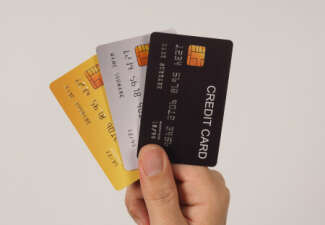The content on this page is accurate as of the posting date; however, some of the offers mentioned may have expired.
Credit cards can make or break you. Every mistake you make with a credit card could eventually cost you more than a pretty penny.
Here are some expensive mistakes that you shouldn’t make:
Making Minimum Payments. In the long run paying more than the minimum balance pays off. For example, imagine you have a credit card with total balance of $5,000. Let’s say your annual interest rate is at 14 percent, your minimum payment would be $100. With this math, it would take 22 years to pay off only $5,000. If you simply increase the payment to $150 your debt would be gone in six years. Either pay $50 more a month, or spend 16 more years thinking about it.
Cash Advances. Cash advances should only be used in case of an emergency. Cash advances are very expensive; they carry high interest rates and usually charge an upfront fee. Also, interest begins accumulating immediately. For a $1,000 cash advance, up front fees are usually $50 and interest is a whooping 25.24%. That means that it would cost you $71 to get the money in a month, and it would skyrocket to $300 in a year.
Using All the Credit. This can be a big hazard to your credit card score. Carrying large balances on credit cards is not a smart move. You may have many credit cards — use all of them, but never let any one balance get above 30% of the total credit limit. It’s in your best interest to keep balances as low as possible.
Don’t Be a Reward Seeker. A lot of credit card companies offer free rewards just to lure the consumer in. Don’t be blinded by this. Don’t get caught in the ideology of spending money just to earn free rewards. Because for the most part these rewards are never free, and only occur after accumulating large amounts of points or charging thousands of dollars. One popular frequent flyer rewards card offers a great 1.25 mile per dollar rebate, but only after you charge $12,000.
Forgetting Your Credit Score. The only way to improve your credit score is to consciously work towards it. Keep your credit score on your mind and you will remember to pay those bills off in a timely fashion and monitor your spending and budgeting habits. Your credit score is divided into five categories: Amount Owed, Length of Credit History, New Credit, Type of Credit and Payment History. Keep this in mind when analyzing your budget books.






